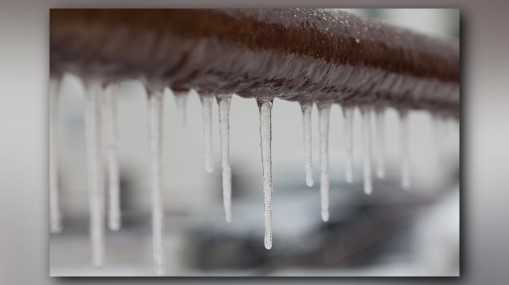What're your insights and beliefs on How To Avoid Freezing Pipes?

Cold weather can wreak havoc on your pipes, especially by freezing pipelines. Right here's just how to avoid it from occurring and what to do if it does.
Introduction
As temperatures drop, the threat of icy pipes increases, possibly leading to costly repairs and water damages. Understanding how to prevent icy pipes is critical for home owners in cold climates.
Avoidance Tips
Protecting at risk pipelines
Wrap pipelines in insulation sleeves or utilize warm tape to safeguard them from freezing temperature levels. Concentrate on pipes in unheated or outside locations of the home.
Heating techniques
Maintain interior rooms effectively heated up, specifically locations with pipes. Open closet doors to permit warm air to distribute around pipelines under sinks.
Just how to identify icy pipelines
Look for reduced water circulation from taps, unusual smells or noises from pipelines, and visible frost on revealed pipes.
Long-Term Solutions
Structural modifications
Take into consideration rerouting pipelines far from outside wall surfaces or unheated areas. Add additional insulation to attic rooms, basements, and crawl spaces.
Upgrading insulation
Purchase high-grade insulation for pipelines, attics, and wall surfaces. Appropriate insulation helps keep constant temperature levels and lowers the threat of frozen pipes.
Securing Exterior Pipes
Garden tubes and outdoor faucets
Separate and drain garden tubes before winter. Install frost-proof spigots or cover outside taps with shielded caps.
Understanding Icy Pipelines
What triggers pipelines to freeze?
Pipelines freeze when exposed to temperatures below 32 ° F (0 ° C) for expanded durations. As water inside the pipelines freezes, it expands, taxing the pipe walls and potentially triggering them to burst.
Risks and problems
Frozen pipelines can bring about supply of water disruptions, residential property damage, and expensive fixings. Burst pipelines can flooding homes and trigger substantial structural damage.
Indicators of Frozen Pipeline
Identifying icy pipelines early can prevent them from breaking.
What to Do If Your Pipes Freeze
Immediate actions to take
If you think icy pipes, keep taps available to ease stress as the ice melts. Use a hairdryer or towels soaked in warm water to thaw pipes gradually.
Final thought
Preventing frozen pipelines requires aggressive steps and quick reactions. By understanding the reasons, indicators, and preventive measures, home owners can safeguard their plumbing throughout cold weather.
Helpful Tips to Prevent Frozen Pipes this Winter
UNDERSTANDING THE BASICS: WHY PIPES FREEZE AND WHY IT’S A PROBLEM
Water freezing inside pipes is common during the winter months, but understanding why pipes freeze, and the potential problems it can cause is crucial in preventing such incidents. This section will delve into the basics of why pipes freeze and the associated problems that may arise.
THE SCIENCE BEHIND FROZEN PIPES
When water reaches freezing temperatures, it undergoes a physical transformation and solidifies into ice. This expansion of water as it freezes is the primary reason pipes can burst. As the water inside the pipe freezes, it expands, creating immense pressure on the walls. If the pressure becomes too great, the pipe can crack or rupture, leading to leaks and water damage.
FACTORS THAT CONTRIBUTE TO PIPE FREEZING
Low Temperatures: Extremely cold weather, especially below freezing, increases the risk of pipes freezing. Uninsulated or Poorly Insulated Pipes: Pipes located in unheated areas, such as basements, crawl spaces, or attics, are more prone to freezing. Insufficient insulation or lack of insulation altogether exacerbates the problem. Exterior Wall Exposure: Pipes running along exterior walls are susceptible to freezing as they encounter colder temperatures outside. Lack of Heating or Temperature Regulation: Inadequate heating or inconsistent temperature control in your home can contribute to frozen pipes. PROBLEMS CAUSED BY FROZEN PIPES
- Pipe Bursting: As mentioned earlier, the expansion of water as it freezes can cause pipes to burst, resulting in significant water damage.
- Water Damage: When pipes burst, it can lead to flooding and water damage to your property, including walls, ceilings, flooring, and personal belongings.
- Structural Damage: Prolonged exposure to water from burst pipes can compromise the structural integrity of your home, leading to costly repairs.
- Mold and Mildew Growth: Excess moisture from water damage can create a favorable environment for mold and mildew growth, posing health risks to occupants.
- Disrupted Water Supply: Frozen pipes can also result in a complete or partial loss of water supply until the issue is resolved.
WHY CERTAIN PIPES ARE MORE PRONE TO FREEZING
- Location: Pipes located in unheated or poorly insulated areas, such as basements, crawl spaces, attics, or exterior walls, are at higher risk of freezing.
- Exterior Pipes: Outdoor pipes, such as those used for irrigation or exposed plumbing, are particularly vulnerable to freezing as they are directly exposed to the elements.
- Supply Lines: Pipes that carry water from the main water supply into your home, including the main water line, are critical to protect as freezing in these lines can affect your entire plumbing system.
- Underground Pipes: Pipes buried underground, such as those connected to sprinkler systems or outdoor faucets, can be susceptible to freezing if not properly insulated.
https://busybusy.com/blog/helpful-tips-to-prevent-frozen-pipes-this-winter/

We had been shown that report about Helpful Tips to Prevent Frozen Pipes this Winter from an associate on our other website. Do you know another individual who is truly interested in the subject? Please feel free to promote it. I take joy in reading our article about 6 Ways to Prevent Frozen Pipes.
Call Today